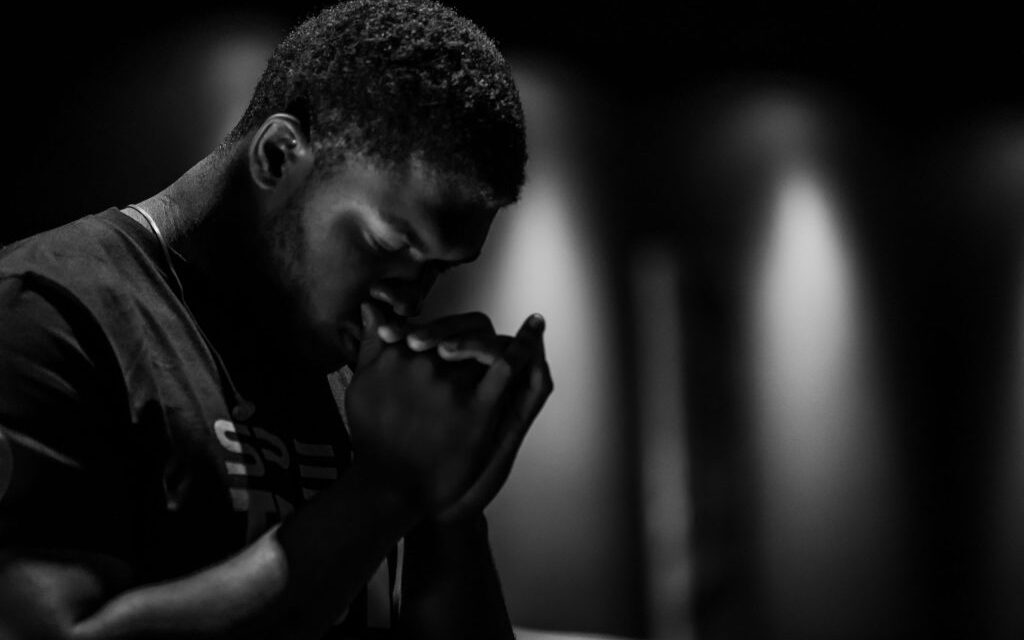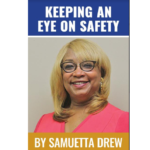By Rev. Dorothy S. Boulware
Word in Black
While some question the reality of what we’ll refer to as “church hurt,” others, especially those who’ve had the experience, have no doubt. They might be unable to explain it, but when you know, you know.
“I define church hurt as the emotional, psychological and religious harm done to parishioners either intentionally or unintentionally due to religious dogma and unhealthy leadership practices,” says Atlanta-based therapist Dr. Jesaira Glover-Dulin.
“About 75 percent of my clients seek out services to resolve and make sense of the church hurt they’ve experienced down through the years.”

What Church Hurt Looks Like
There are as many types of church hurt as there are people trying to heal from the painful experiences. Sometimes, it happens when the family unit has experienced a trauma, a death, or a divorce — something that changes the way one can relate to the church family.
“Much of the hurt comes from parishioners feeling coerced and manipulated into lifestyles that don’t align with who they really are. Oftentimes, this is sexism for the women, and they feel forced into roles that are not truly who they are,” Glover-Dulin says.
“Maybe the pastor had an affair or the congregation fought over money or the leaders were disguising gossip as ‘prayer,’” author and former pastor Stephen Mansfield wrote in his book, “Healing Your Church Hurt.”
And then there’s outright discrimination. In his book, Mansfield, who is White, detailed “how a predominantly white, affluent congregation treated my Hispanic daughters. All of my daughters are adopted, and two of them are from a Latin American country. While my wife and I were welcomed with open arms by the congregation, the distasteful treatment accorded to our little girls in their Sunday school classes — by teachers and students alike — made it impossible for us to stay put. Once again, the gap between what was preached and what was practiced made it unbearable for us to remain in our church home.”
Glover-Dulin says hurt can also evolve “from unmet and unrealistic expectations from the church and its leadership.”
This happens because some people see their spiritual leader as someone they are willing to take advice from, someone whose voice they respect to guide them. We often mistakenly place these leaders on a pedestal and are crushed when disappointed.
New Jersey-based therapist Siomara Wedderburn offers yet another type of church hurt.
“One type of hurt is the instance of a professional person feeling their gift should make room for them within their church, but getting no encouragement and sometimes are discouraged by the leaders they respect,” she says.
“When there is a prescribed path toward leadership, but then favoritism or power dynamics come into play — where certain families or individuals are obviously preferred over others. This can be earth-shattering to a new Christian who just wants to fit into the church,” Wedderburn says.
Church hurt “also shows up as bullying, emotional abuse, verbal abuse from the pulpit. These women are also overworked in church ministry and lack self-care and healthy boundaries,” Glover-Dulin says.
The result is that many, if not most, leave the church — and may not return to the church where the abuse occurred.
Deciding to Leave Your Church
We sometimes talk about church as if it’s nothing, but most people have invested a lot of time and energy into their church of choice. It is often the church their family has attended for generations, and leaving cannot be an easy option.
Christian research agency Barna Group says a significant number of people who leave their churches cite negative experiences as a key reason. Their studies have found that nearly 40 percent of people who’ve stopped attending church regularly point to “personal hurt” as a primary reason. LifeWay Research, another organization that focuses on church trends, found that 66 percent of churchgoers who stopped attending church regularly reported they left because of personal conflict or painful church experiences.
Glover-Dulin says most of the women she’s worked with who experienced abuse at church didn’t return to their congregation.
“While there tends to be a love of God, there’s a strong disdain for the institution called church. They don’t feel heard, seen, or validated,” Glover-Dulin says.
“People do often leave because of the turmoil over even the fact that the relationship has been severed. And it’s so painful,” Wedderburn says. “But it’s not a decision that’s been made lightly, and it is connected to your relationship with Christ. And especially for people who thrive on fellowship and being in a body has become part of your spiritual practice and discipline, leaving that has some big implications.”
How to Heal From Church Hurt
To help her clients heal from church hurt, Glover-Dulin says she helps them identify their core values and work towards value-based alignment and living.
“I also teach them the importance of establishing a consistent self-care regimen and clear boundaries,” she says. She adds that her clients are subconsciously living according to religious roles and outdated archetypes not reflective of their values.
“It is important for these individuals to redefine and clarify their identity beyond the religious circle, which will assist with managing expectations while fostering a healthy, balanced self-concept.”
Wedderburn helps her clients examine their situation.
“Are you connecting? How are you connected? How are you reaching out to become a part of and understand the unique rules of engagement of that particular congregation?” she says.
She also suggests joining a smaller group to learn the dynamic before attempting full church leadership.
“Go only if and when the Lord says so” is the advice Jenni Lien, founder of the online ministry the Yay Project, offers on her website and in her podcast. She readily shares her experience and understands that church hurt is a difficult pain to overcome.
Lien’s number one tip is to cry out to Jesus.
“No matter what others might say, we can have 100 percent confidence that God cares about our hearts. He’ll definitely lead us to his truths and help us act in his ways,” Lien said. “We are his daughters and can speak with him honestly.”
This article was originally published on WordinBlack.com.
The post The hidden pain of church hurt appeared first on AFRO American Newspapers.











